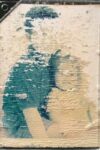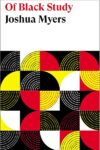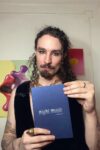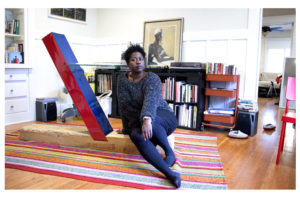
credit Ken Ehrlich
Recently placed on the longlist of The Believer Book Awards in the nonfiction category, Gabrielle Civil’s memoir Experiments in Joy centers on her own experience as a black feminist performance artist existing in a place that doesn’t always see those words in that order. But Civil’s book moves easily beyond any staid definition of nonfiction, touching on her own collaborations and performance pieces alongside discussions of Rita Dove’s work and her own personal and romantic relationships, among other topics. Civil and I corresponded over several months, during which time she performed in several different locales across the country while also solidifying her artistic foothold in Los Angeles, her new home.
Jeff Alessandrelli: Did the reception to your first memoir Swallow the Fish impact your writing of Experiments in Joy? Further, with hindsight being 20/20 would you have done anything differently vis-a-vis the writing and publishing of Swallow the Fish – and if so how did that knowledge impact the writing/publication of Experiments in Joy?
Gabrielle Civil: It makes me so happy that Swallow the Fish has found its people and made a deep connection. That book took so long to write and was so hard to get published that the positive reception has been a huge validation. It affirms that the world wants to read more weird books by women, more books about artists coming of age, about performance art, about black feminist experience. Knowing that did help me feel more confident that a second book could find its people too.
At the same time, as you know, you can feel a lot of pressure with a second book.
I didn’t want to have Swallow the Fish hanging over me too much. And I really wanted to keep the momentum going. Luckily my publishers allowed me to strike while the iron is hot. I love The Accomplices! My positive experience with them with Swallow the Fish made it a no-brainer for me to work with them again on Experiments in Joy. And I had so much uncollected writing, it wasn’t so much a matter of writing an entirely new book, but selecting, revising, and sequencing material to create a coherent flow.
Do you thus consider Experiments in Joy a continuation of Swallow the Fish or a completely different text?
Both / and. On the one hand, Experiments in Joy is another entry in my chronicle of performance body. Some of the same people from Swallow the Fish – like my friends Rosa, Madhu, Zetta, and Miré – show up here. And it continues my project of taking my own work super seriously, building an archive of my practice as a black feminist performance artist, and contributing to a greater archive of black women’s creative expression. On the other hand, it’s a really different book, a little looser, a little wilder, even academic in moments. It’s less a coming of age story and more of a mix tape. Zetta just told me she thinks Experiments in Joy is more accessible than Swallow the Fish. I think it’s a little less angsty, but it’s still me after all!
Compared to its predecessor, Experiments in Joy seems to delve a bit more into areas involving authorial vulnerability – am I right about that or making it up? I’m in particular thinking about the section of the book involving your ex Moe Lionel, a writer and performance artist, wherein, in a letter exchange with him, you write, “I am very private about my love life . . . I DON’T WANT TO TALK ABOUT IT.”
Immediately after that assertion, however, you of course do talk about it, with both Lionel and the reader. I’m thus curious how such revealings impact you as a writer. As someone who is comfortable performing in front of seemingly any type of crowd, is this intimacy between (invisible) writer and (invisible) reader a challenge for you in any way? Or is it just a different type of performance, one you welcome and embrace?
Yes, vulnerability is definitely a big part of Experiments in Joy. I mention my lost fertility in the book, messages I received as a girl about my body, and certainly the piece with Moe brings in love, sexuality, anger, and desire. The use of the letter form helped these vulnerable topics appear organically in my writing. So in my letter to Moe, I can both proclaim: “I DON’T WANT TO TALK ABOUT IT” and go ahead and talk about it anyway.
It takes a lot to be honest and vulnerable in writing. Still it feels vital to try and do it. As my collaborators and I said five years ago, the first step in an experiment in joy is “Tell the truth.” This, of course, is the hardest step. Telling the truth can sometimes feel like sharing intimacy with a reader. It can also feel isolating or dangerous, especially when other people are involved. I have the best mother in the world, really a lovely and deeply supportive person, but in one part of Experiments in Joy, I share a time when she said something painful to me. It was hard to put that in the book and I know it’s hard for her to think that this portrayal of her as a mean mom is in the world. Still it felt crucial to include. And the whole thing, the experience and my writing about it, speaks a lot about vulnerability, hers and mine. I wouldn’t call writing about this a performance, just a revelation of experience. Although it’s true that’s what a performance can be.
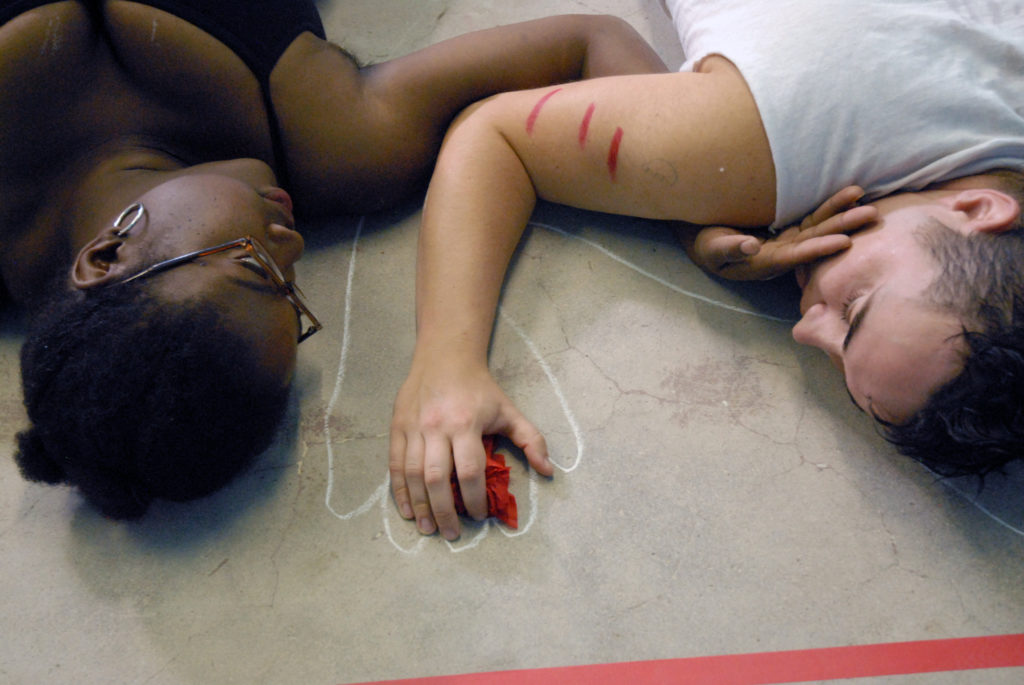
I can definitely feel the “mix tape” angle of Experiments in Joy, although I think Swallow the Fish contained elements of that as well. Being that you’re involved in academia, a place where cohesion and (proven) formula is looked fondly upon, do you think your work in both books and simply generally as an artist is a way of subverting the expected societal norms of an academic? I don’t come from a performance art background and one of the things that I found striking in both Experiments in Joy and Swallow the Fish is the reveling each text takes with regards to form and bald divergence from it. We’ve talked about this in person before but is there a reason why writing a straightforward memoir with clear linear progression and no interjections of any kind didn’t appeal to you? I guess what I’m asking is how, on the page and in the living breathing world, you gravitate to the displacements that you do.
I love this question because it reminds me of a conversation I had with my friend Jessica Martinez who said, “I read Swallow the Fish and it was great but can I just ask you, do you think you’ll write a book where you tell people what happened and what you were doing and what job you had and take people step by step?” In other words, what kind of memoir is this, friend? I had to laugh. It’s not so much that I’m trying not to write a straightforward memoir as that’s now how I feel like I’ve experienced my own life, or art, or the world, or certainly the creative practice of making performance. There’s so much about simultaneous time and space, about circular and circulating questions.
In my work, I’m trying to get inside of performance time, inside my own thinking and making and interiority. I’m trying to get under my own surface and the boxes that the world and my own communities have put me in to blink and breathe and explore and play. In terms of the academy, I’ve been very fortunate to have consistent employment with benefits – and that’s not a small thing. Being a professor has bankrolled my creative practice. And I do love to teach and generate knowledge with people. My work – in performance and writing – is not traditionally academic but hopefully can be seen as part of a wave of artists and writers who are pushing their creative ideas critically and are doing the academy in a different way. So here I’m thinking of Fred Moten, Omise’eke Natasha Tinsley, and Alexis Pauline Gumbs’ Eternal Sunshine of the Black Feminist Mind, which is a really inspiring project. And always, like the 90s club kid I aspired to be, I’m repping Roni Size’s “New Forms.” It’s what we need not just in the academy but in the world overall.
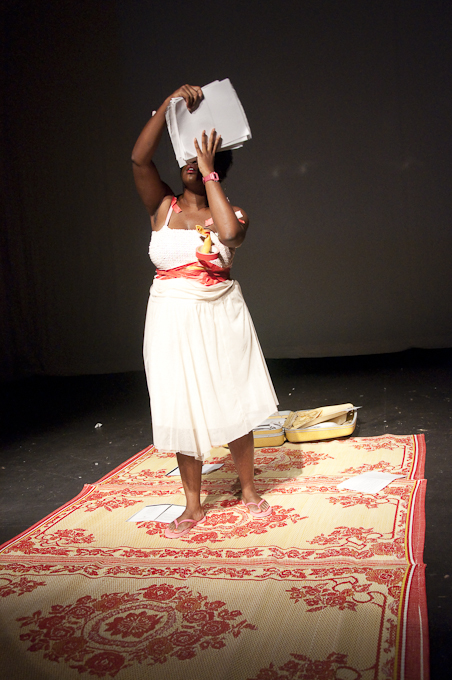
In Experiments in Joy you call Rita Dove the “Poet I Have Most Loved in My Whole Entire Life,” stating that you also wrote about her work for your undergraduate and masters’ theses. There seems to be both an innocence and wonder for your admiration of her and I wonder if that’s faded at all over time. Do you allow your heroes to fail you? Do they fail you? Or is your Rita Dove one that eternally glitters?
My Rita Dove remains glittering. And it helps that when I met her she was kind and warm and wonderful – although my dream of us going out to get manicures together has still not come to pass. (Have you seen her signature fingernails? Dreamy . . .) Your question goes deeper though. How easy is it to idolize people when we now can know so much more about them: their foibles, imperfections, or unfortunate views? When I first loved Rita Dove, I didn’t know her at all and didn’t really know how to reach her. There was no internet or social media. There were just books I checked out from the library and then bought and carried around in my purse. She held the space of being a living black woman poet, which I hadn’t known could even exist. There was a kind of innocence in that kind of love which was connected both to my age and to that media age too. As for heroes, I claim Harriet Tubman as a hero and Gwendolyn Brooks and Adrian Piper and Mae Jemison. They haven’t failed me yet. Still it can get more complicated. Like everyone in this moment, I’m trying to navigate who people are, what they say or do, the quality of the work they produce, and my own value system. In my classrooms and communities, we’re having a lot of big conversations.
This interview has transversed some months – we first talked about in June 2019 and now it’s February 2020, winter’s blossom – and in that time the book has passed through many a reader’s hands and has also just been put on the longlist of The Believer’s annual Book Awards. Congrats! Hand in hand with that, then – and this might be a weird question, but it’s one I think about a lot – how do you navigate success as an artist? Does it satisfy you? Content you? Or simply make you want to do more, more, more? None of those things but something else? If the title of the book is literally Experiments in Joy it obviously brings up the question of what is experimental about that seemingly most straightforward of emotions. But joy’s never as easy or straightforward as that, right?
You got that right! Ooooooh! Success – or what Sheila E. called “the glamorous life.” Or the world of Pentacles, disk, coins, materiality that’s been coming up for me lately. I feel very blessed and have lately been receiving lots of requests for readings, talks, gigs, things that actually offer payment – and I’ve been hearing that more people have been reading and teaching my work and that feels sooooo good because I felt like such a wallflower for so long. But I don’t want to become one of those insufferable writer / artists with a big head. And I want to enjoy the moments of recognition and stand in my own power. I believe in my work and learned through the protracted process of getting Swallow the Fish published, that it’s crucial for me to believe in my own genius. If I don’t, who else will? Still how can or should I quantify my own value? How much should I ask for? How much should I take? How can I remain accessible to people, organizations, communities that matter? How can I be a resource? And as my collaborators and I ask in the “Call for Experiments in Joy” at the end of the book: “Am I available to myself and my own calling?” How can I steward my own time – keep my overhead low enough – so that I can continue to write and make performances and dream? Those are active questions for me right now.
In fact, I recently got paid for a gig and went on a book binge (oooh I got some excellent books – your latest book Fur Not Light and Danez Smith’s Homie, and EXTRATRANSMISSION by Andrea Abi-Karam, and Build Yourself a Boat by Camnghne Felix, and I even splurged on the art book Black is Beautiful by Kwame Brathwaite) and then I thought WHAT ARE YOU DOING? And I felt so guilty for spending money this way and shame at my gluttony and lack of self-control and super boojie for my class privilege and then kind of alarmed at my inability to accept nice things from myself. I love to give gifts to other people and I always think I’m so nice to myself, but it felt hard to let myself have things that I wanted – even when my success, as you named it, actually gave me the resources to be able to do it. So that felt new.
In my journal, I wrote:
having and spending / making and saving / giving and keeping/ holding and releasing/ allowing and deserving / safeguarding and enjoying / working hard and trusting/will power and intuition/ scarcity and abundance/ worrying and relaxing/ pleasure and shame/ winning and thriving / slowing down and breathing deep / thinking ahead and living now – this is what I need to balance. So it’s my classic Libra nature having to negotiate these important aspects of life.
I wanted to end by using some of your own language from the book. The final section of Experiments in Joy represents a “Playlist,” one that asks the reader/listener/viewer a series of questions. So I wanted to throw just two of those questions back at you, the author. Namely, right now, at this moment in time:
What world are you building?
A world of rising and resting in power, a world of dreams, with dreams reminding us that rest is not a passive state, a world of books and art and community connections, a world of recovery and reclamation, a world of breath and possibility and dancing and joy, a world of wild beauty
& Who is holding your energy?
God, Prince, the tarot, my family and all my friends far flung across the world.
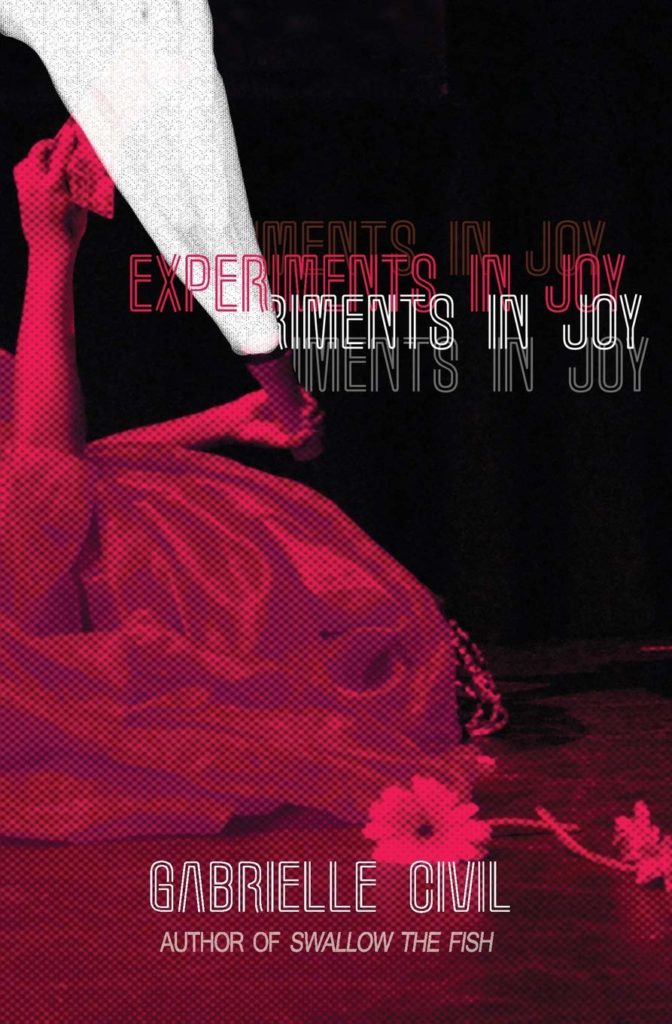
Gabrielle Civil
The Accomplices
February 15, 2019
Jeff Alessandrelli is the author of the full-length poetry collections THIS LAST TIME WILL BE THE FIRST (2014) and Fur Not Light (2019), both from Burnside Review Press. He’s additionally the author of a short poetic biography of the French avant-garde composer Erik Satie entitled Erik Satie Watusies His Way Into Sound (Ravenna Press; 2011), a short essay collection focusing on skateboarding and The Notorious B.I.G. entitled The Man on High—Essays On Skateboarding, Hip-Hop, Poetry and The Notorious B.I.G. (Eyewear (U.K); 2018) and five chapbooks. Recent work by him appears in Poetry Northwest, The American Poetry Review, and The Hong Kong Review of Books. In addition to his own writing, Jeff also runs the vinyl-record literary label Fonograf Editions. He lives in Portland, OR.
This post may contain affiliate links.





